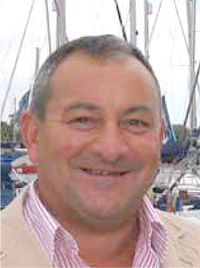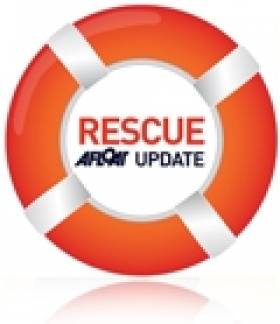Displaying items by tag: Galway Hooker
Crowds Come Out for An Tóstal Revival
Currach teams from around Ireland came together in Galway Bay last weekend for the revival of the An Tóstal Fesival, the Irish Times reports.
Up to 10,000 spectators are believed to have watched the nine Galway hookers brave the winds over two days of sailing in the event, the first in almost 50 years.
Members of the winning currach team from 1955 An Tóstal were also on hand for the opening ceremony.
The Irish Times has more on the story HERE.
Lifejackets 'Must Be Worn', Inquest Hears
The coroner for Galway West has urged all boat-users to wear lifejackets and put safety first on the water.
Dr Ciarán McLaughlin spoke at the inquest into the death of experienced sailor Johnny Mac Donncha, who drowned after his Galway hooker was knocked over by a gust of wind, The Irish Times reports.
Mac Donncha, 67, was not wearing a lifejacket at the time of the accident on 5 September 2009. Despite the best efforts of rescuers in a neighbouring boat, he could not be revived.
The investigation into the incident found that if he had been wearing the lifejacket that was on board for him, "it would have increased his chances of survival".
The inquest also found that there was no VHF radio on board either vessel, the presence of which would have attracted helicopter assistance "faster and with greater ease".
Galway Sailmaker Teams up with Hyde Sails
Hyde Sails has announced the appointment of a new loft in Galway.
The only sailmakers on Ireland's west coast, Cullen Sailmakers was established in Galway in 1984. Since then Glendy Cullen (pictured below) has established a reputation for his loft's expertise and friendly service, manufacturing and repairing sails for both modern designs as well as the more traditional side, such as the Connemara and Galway Hooker gaff rig boats.
As the business grew, it moved to new and larger premises in Ballybane Industrial Estate. Glendy Cullen explains: "This move has facilitated our expansion and allows us to operate on a more professional and customer friendly basis. The central location of this sail loft has also proved hugely beneficial as it is easily accessible from all parts of the city and county."

The tie-up with Hyde was the next logical step, enabling the loft to offer an even more comprehensive service. 'I like Hyde's sails and the quality of workmanship is very high, ' explains Glendy. "We wanted a partner to help us to increase our production resources to enable us to meeting the ever-growing demand for our services, without compromising on quality."
Shore crew sailmaker for the Volvo Ocean Race Irish Green Dragon team, Glendy worked closely with the sailors and their onboard sailmaker during the last stopover.
Hyde's Sales and Marketing Director Richard Franks commented: "We see this as a big step for the Hyde brand in Ireland. In Glendy we have a strong local sailmaker who is already offering a fantastic level of service. The partnership brings together the strength of the Hyde brand and our state of the art production facilities, and a local, hand-on loft with the skills to service the Irish market locally at a time when Galway is expanding rapidly as a sailing area. It gives us great pleasure to welcome Glendy and his team to the Hyde family.'






























































